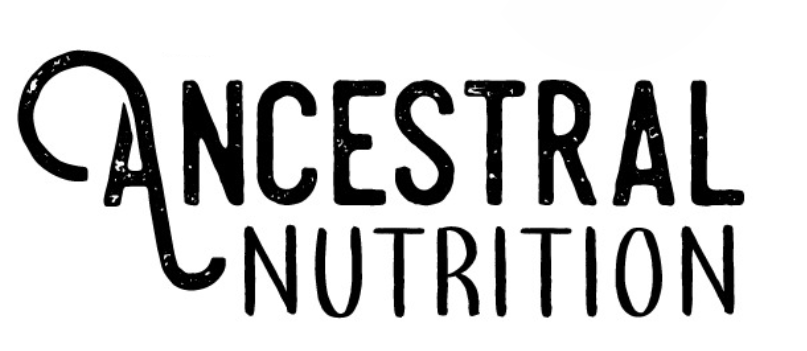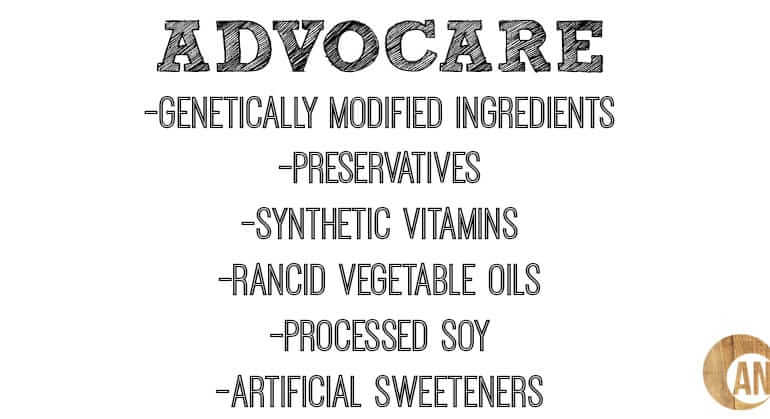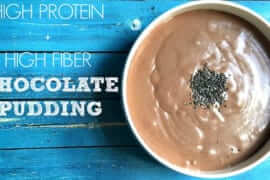Way back when I wrote my review of Herbalife, I had no idea it would garner the attention that it did. After Herbalife, I reviewed Isagenix because I received so many emails asking me about the quality of the products. Today, after receiving yet another review request for Advocare, here it is.
First of all, I do not advocate meal replacement shakes in general. The basis of my nutrition coaching is not about shortcuts. It’s not about drinks that help you become “trim,” and it’s not about sketchy protein bars.
Before it’s asked, this is the protein I use and recommend. I couldn’t find one good enough on the market, so I made my own. Grass-fed collagen with six organic superfoods: kale, spirulina, wheatgrass, broccoli, spinach and turmeric. I drink it in my daily smoothies and it gives me LIFE. Aka a healthy gut, glowing skin, strong digestion and energy for DAYS. Use code 10OFF for 10% off!
Unfortunately, Advocare doesn’t fit the bill.
The Vegetarian Meal Replacement Shake ingredient list:
Pea protein, whole grain brown rice protein, potato protein, soy protein isolate, L-glutamine, L-lysine, L-leucine, L-isoleucine, L-valine, fructose, natural flavors, cocoa powder (processed with alkali), dicalcium phosphate, potassium citrate, potassium chloride, magnesium oxide, choline bitartrate, ascorbic acid, inositol, d-alpha tocopheryl acetate (vitamin E), d-biotin, zinc oxide, niacinamide, L-selenomethionine, d-calcium pantothenate, vitamin A palmitate, copper gluconate, manganese sulfate, phytonadione (vitamin K 1), chromium citrate, riboflavin (vitamin B2), folic acid, cholecalciferol (vitamin D3), pyridoxine HCl (vitamin B6), thiamine HCl (vitamin B1), cyanocobalamin (vitamin B12), sodium molybdate, potassium iodide (iodine), gum arabic, flaxseed, cellulose gum, xanthan gum, medium chain triglycerides, Reb-A (stevia extract), oat fiber, citrus pectin, bromelain, papain
The AdvoBar Apple Cinnamon ingredient list:
Soy protein isolate, corn syrup, soy nuts, dried apples, sugar, beet syrup, sunflower oil, chicory fiber, dicalcium phosphate, magnesium oxide, ascorbic acid, ferric pyrophosphate, dl-alpha-tocopherol acetate, niacinamide, zinc oxide, calcium d-pantothenate, copper citrate, manganese sulfate, pyridoxine hydrochloride, riboflavin, thiamine mononitrate, beta carotene, vitamin A palmitate, folic acid, d-biotin, potassium iodide (iodine), sodium selenite, phytonadione, cholecalciferol, cyanocobalamin, glycerin, calcium caseinate, fractionated palm kernel oil, caramel color, salt, cinnamon, soy lecithin, natural flavors, tapioca starch, whey powder, nonfat milk powder, yogurt powder (cultured whey and nonfat milk), milk protein, malic acid, sucralose
The Rehydrate Gel ingredient list:
Water, maltodextrin, fructose, dextrose, calcium lactate, natural flavors, citric acid, magnesium citrate, ascorbic acid, L-glutamine, sodium citrate, potassium citrate, xanthan gum, potassium sorbate, sodium chloride, sodium benzoate, potassium chloride, sucralose, pyridoxine hydrochloride, niacinamide, beta-carotene, calcium pantothenate, thiamine hydrochloride, riboflavin, chromium citrate
The Meal Replacement Shake:
Whey protein concentrate, calcium caseinate, milk protein isolate, L-glutamine, L-lysine, L-leucine, L-isoleucine, L-valine, crystalline fructose, dicalcium phosphate, potassium citrate, potassium chloride, magnesium oxide, ascorbic acid, choline bitartrate, ferrous fumarate, inositol, vitamin E acetate, zinc oxide, niacinamide, vitamin A palmitate, copper gluconate, calcium pantothenate, manganese sulfate, chromium citrate, riboflavin, pyridoxine hydrochloride, selenomethionine, thiamine hydrochloride, biotin, folic acid, phytonadione, cholecalciferol, sodium molybdate, potassium iodide (iodine), cyanocobalamin, maltodextrin, gum arabic, natural and artificial flavors, guar gum, beet root extract (for color), xanthan gum, medium-chain triglycerides, citric acid, malic acid, oat fiber, cellulose powder, citrus pectin, soy lecithin, sucralose, bromelain, papain
The AdvoBar Meal ingredient list:
Isolated soy protein, whey protein concentrate, whey protein isolate, glycerin, corn syrup, maltitol, chocolate coating (whey protein concentrate), palm kernel oil, maltitol, cocoa powder, sugar, soy lecithin [an emulsifier], vanillin [an artificial flavor]), water, soy fiber, maltodextrin, peanut flour, coconut oil, inulin, ascorbic acid, beta carotene, biotin, calcium pantothenate, tricalcium phosphate, ferric orthophosphate, folic acid, magnesium phosphate, niacin, magnesium & calcium phosphates, pyridoxine hydrochloride, riboflavin, thiamine hydrochloride, palmitate, cyanocobalamin, cholecalciferol, tocopheryl acetate, guar gum, natural and artificial flavor
Soy Protein Isolate, Soy Nuts, Soy Fiber
First, I’ve written about the health effect of soy before. Whereas fermented, organic soy in small amounts (like natto) does not pose serious health risks, eating soy protein isolate/nuts/fiber, especially every day, will definitely take its toll on the body.
For example, effects of soy include decreased libido, mood swings, protein malabsorption, endometriosis, depressed thyroid function, and several others.
This study from Harvard found that men consuming the equivalent of one cup of soy milk per day had 50% lower sperm count than men who did not consume soy. Most noteworthy, this result emerged even accounting for other factors like age, caffeine and alcohol intake, etc..
From the study,
There was an inverse association between soy food intake and sperm concentration that remained significant after accounting for age, abstinence time, body mass index, caffeine and alcohol intake and smoking. In the multivariate-adjusted analyses, men in the highest category of soy food intake had 41 million sperm/ml less than men who did not consume soy foods.
Importantly, the processing that soy protein isolate undergoes is also a huge cause for concern. In addition, Dr. Mercola describes the process,
Production takes place in industrial factories where a slurry of soy beans is first mixed with an alkaline solution to remove fiber, then precipitated and separated using an acid wash and, finally, neutralized in an alkaline solution… The resultant curds are spray- dried at high temperatures to produce a high-protein powder.
Fructose
Yes, fructose is found in fruit. But let’s consider that a safe fructose intake is around 25 grams per day, and around 15 grams if a metabolic disorder is present. Fructose is processed by the liver, an excess of fructose is not only toxic to the liver but forms free radicals and triglycerides. Regular and high fructose consumption is so toxic to the liver, that it can even lead to non-alcoholic fatty liver disease (NAFLD). From Emory University School of Medicine,
Substantial links have been demonstrated between increased fructose consumption and obesity, dyslipidemia, and insulin resistance. Growing evidence suggests that fructose contributes to the development and severity of NAFLD. In human studies, fructose is associated with increasing hepatic fat, inflammation, and possibly fibrosis…Sufficient evidence exists to support clinical recommendations that fructose intake be limited through decreasing foods and drinks high in added (fructose-containing) sugars.
In short, obtaining a small, natural amount of fructose in unprocessed foods is fine. But obtaining isolated fructose from a processed protein drink…not so much.
Sucralose
To start off, sucralose (otherwise known as Splenda) is an artificial sweetener. It is made in a lab with three chlorine molecules to a sugar molecule.
In addition, when tested on mice, consumption of sucralose resulted in a significant reduction of beneficial gut flora. Considering that our gut flora helps protect us from everything ranging from the flu to cancer to depression, this is significant.
Especially relevant, Dr. Morando Soffritti, Director of the Ramazzini Institute in Bologna recently performed a study that showed an association between mice fed sucralose and leukemia.
To sum up, the more sucralose they consumed, the higher the risk of developing leukemia.
From Dr. Soffritti,
“Health concerns over aspartame are leading consumers to switch to the widely promoted alternative: sucralose. Now that we have found evidence of a link between sucralose and cancer in mice, similar research should be urgently repeated on rats, and large scale observational studies should be set up to monitor any potential cancer risk to human health.”
Sunflower Oil
First, consider for a second how oiled a sunflower seed is: It isn’t.
According to Soya Tech, companies process oil-type sunflower seed according to these steps:
- Seed Preparation and cleaning
- Dehulling
- Physical pressing of the sunflower seed with subsequent hexane extraction of the remaining oil in the meal
- Degumming
- Refining
- Bleaching
- Dewaxing
- Deodorization
- Storage
Clearly, I never recommend an oil that’s been refined, bleached, deodorized or degummed. In addition, consider the omega-3 to omega-6 ratio. Polyunsaturated oils are rich in omega-6 and cause inflammation that can lead to heart disease.
Consequently, the lipid composition of sunflower oil is as follows:
Polyunsaturated: 65.7 grams
Monounsaturated: 19.5 grams
Saturated: 10.3 grams
Nonfat Milk Powder, Whey Protein Concentrate, Milk Protein Isolate
These are all denatured, processed forms of dairy. In addition, nonfat milk is skim milk powder.
From the Weston A. Price Foundation,
In order to make powdered milk, fluid is forced through a tiny hole at high pressure and then blown out into the air. As a result, this causes a lot of nitrates to form. The cholesterol in the milk becomes oxidized. Contrary to popular opinion, cholesterol is not a demon but your best friend; you don’t have to worry about consuming foods containing cholesterol, except that you do not want to consume oxidized cholesterol.
Natural and Artificial Flavors
“Natural and artificial flavors” are a clever way to avoid labeling. Technically castoreum is a “natural flavor.”
Castoreum is the exudate from the castor sacs of the mature North American Beaver and the European Beaver.
According to the FDA,
The term natural flavor or natural flavoring means the essential oil, oleoresin, essence or extractive, protein hydrolysate, distillate, or any product of roasting, heating or enzymolysis, which contains the flavoring constituents derived from a spice, fruit or fruit juice, vegetable or vegetable juice, edible yeast, herb, bark, bud, root, leaf or similar plant material, meat, seafood, poultry, eggs, dairy products, or fermentation products thereof, whose significant function in food is flavoring rather than nutritional.
Hence, MSG, GMOs and other sketchy ingredients can be listed as “natural and artificial” flavors.
Furthermore, here is the protein shake I make. It’s unprocessed, made from real food and actually good for you.
CONCLUSION:
In short, Advocare is not healthy. Hence, you literally could not pay me to ingest these products.
Therefore, the only way to lose weight and keep it off is to eat well, to eat real food, and give your body what it needs.
In addition, if you’d like more information about taking care of your body and keeping weight off for good, I definitely suggest checking out my 21 Day Lifestyle Transformation.
In conclusion, as I said at the beginning of this article, we eat well, we take care of ourselves, we take pride in our bodies and we love ourselves enough not to pollute our bodies with toxic ingredients.
*Also, if you would like a product review, please provide a specific link to the ingredients of the product you would like reviewed.
Sources:
https://www.advocare.com/products/trim/T2151.aspx
https://www.advocare.com/products/active/A3612.aspx
https://www.advocare.com/products/active/A1403.aspx
https://www.advocare.com/products/trim/T1251.aspx
http://humrep.oxfordjournals.org/content/23/11/2584.full
http://www.mercola.com/article/soy/avoid_soy.htm
http://www.ncbi.nlm.nih.gov/pubmed/23390127
http://www.ncbi.nlm.nih.gov/pubmed/24219506
http://www.nature.com/ejcn/journal/v66/n8/full/ejcn201247a.html
http://www.medicalnewstoday.com/articles/244603.php
http://www.soyatech.com/sunflower_facts.htm
http://www.westonaprice.org/modern-foods/dirty-secrets-of-the-food-processing-industry
http://www.accessdata.fda.gov/scripts/cdrh/cfdocs/cfcfr/cfrsearch.cfm?fr=101.22




